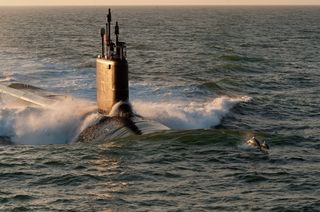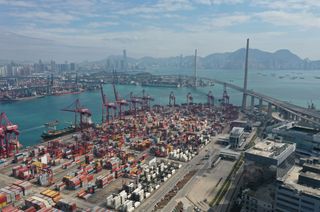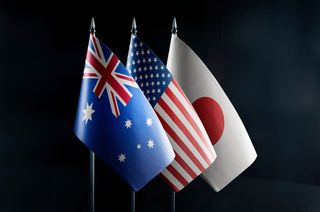The Lowy Interpreter
By Tom Switzer
Many Liberals and conservatives have looked on sadly over the past three decades at the career of Malcolm Fraser. Like British prime minister Ted Heath, Fraser started off as a man of the Right but ended up as anything but.
But some political questions transcend party, and in the post-Cold War era, ideological divisions on foreign policy all too often foster simplistic divisions and create artificial alliances. So when Fraser warned of the dangers of isolating Putin's Russia, or intervening (again) in Iraq, or being obedient to America, he always deserved a respectful audience.
On Ukraine, Fraser believed that the West's policy of NATO expansion and pulling Ukraine away from Russia's strategic orbit had precipitated the crisis. He recognised that although the Western alliance was a magnificent achievement in containing Soviet power, it was moribund in the post-Cold War era.
According to Fraser, NATO expansion was bound to cause trouble. Among other things, it would violate Churchill's wise principle of 'In Victory, magnanimity', and in the process upset the strategic sensibilities of a nuclear power. So when Russia intervened in the Crimean peninsula a year ago in direct response to the West's role in toppling a pro-Russian government in Kiev, Fraser was hardly surprised. Far from reviving the Soviet empire, he said, Putin's move was a defensive attempt to protect legitimate security interests.
'We should always give our adversary an avenue of escape,' Fraser told me a few months ago. In the context of Russia, this meant making Ukraine a buffer state and giving Moscow some strategic space in what it had deemed its sphere of influence long before Stalin and Lenin even appeared on the scene. Moreover, he would point out with good reason, what's good for the goose is good for the gander. Imagine Washington's response if another great power expanded a military alliance into the Caribbean or toppled pro-American governments in Latin America.
On Iraq, Fraser was a strong opponent of both the invasion, 12 years ago yesterday, as well as the recent US-led coalition to fight Islamic State jihadists. What drove him was a sense of history.
He understood American outrage over both the September 11 terrorist attacks and the recent Islamic State videos of carefully choreographed beheadings of Western hostages. But in toppling Saddam Hussein's regime and in fighting Sunni jihadists, Fraser warned, the US-led coalition was bound to make a bad situation worse. Fraser would stress that because Iraq was an artificial state and ethnically fractured society created out of the ruins of the Ottoman Empire, it would be virtually impossible for Western powers to create a viable state in the post-Saddam era. And he was quick to warn about the unintended consequences of both missions, such as a strengthened Iranian presence in Shia Iraq and a further marginalised Sunni minority that would not just tolerate but even support Sunni terrorists. Far from 'draining the swamp' of jihadists, he argued, we would replenish them.
On the US alliance, although Fraser was a strong supporter of Washington during the Cold War, he believed that the circumstances of the post-Cold War era justified a more nuanced and independent Australian foreign policy stance. I think Fraser overstated his case that Australia, under prime ministers Howard, Gillard, Rudd and Abbott, had become an American lickspittle. America, he feared, had become a revolutionary unilateral power, bent on transforming the world in its image rather than dealing with the world as it is. Fraser argued that in an inherently unequal relationship, there was a risk of Australia becoming so enmeshed in US strategy that it would lose its autonomy. Thus, the alliance was less relevant to Australia, and America a less appropriate ally on which Canberra should rely as it has in the Cold War. The trouble is that Fraser's call for an 'independent foreign policy' was essentially another way of saying the alliance should be abandoned. That makes no strategic sense, as Bates Gill and I pointed out in Foreign Affairs recently.
Still, Fraser was right to point out that an unconditionally loyal ally such as Australia should not expect reciprocal loyalty from a great power if it was inconvenient. And he was right to call for Canberra to engage with China, even if that meant, for instance, that Australia's inclusion in the China-led infrastructure bank would aggravate Washington. There was also something to be said for his concern that the so-called Obama pivot to Asia could push an insecure China into an anti-foreign posture that has often characterised that nation since its defeat in the Opium Wars in the mid-19th century.
During the past 18 months, Fraser and I would frequently exchange thoughts on the aforementioned issues. He once gave me some wise advice that any foreign policy practitioner should bear in mind: when dealing with an adversary, real or imagined, it is wise to try to understand any contentious issues from their perspective and to put contemporary events into a broader historical context. In relations with Russia and China today, perhaps even Iran, it is sound counsel.
That wisdom perhaps explains why Malcolm Fraser was so respected by global figures of stature such as Helmut Schmidt (chancellor of West Germany, 1974–82), Lee Kuan Yew (Singapore's founding prime minister), Henry Kissinger (US secretary of state, 1973–77) and of course the late Nelson Mandela.
RIP, old friend.
This article was originally published at The Lowy Interpreter




